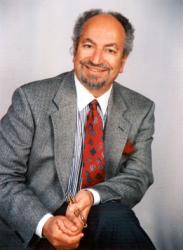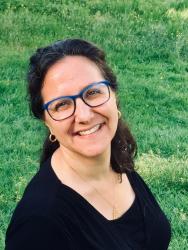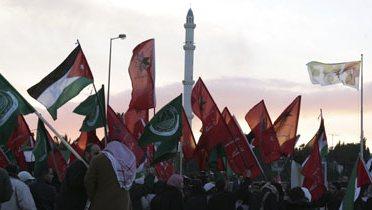Content from the Brookings Doha Center is now archived. In September 2021, after 14 years of impactful partnership, Brookings and the Brookings Doha Center announced that they were ending their affiliation. The Brookings Doha Center is now the Middle East Council on Global Affairs, a separate public policy institution based in Qatar.
The Doha Discussion Papers provide testament to the opportunity for renewed dialogue between the United States and the Muslim world. Written specifically for the U.S.-Islamic World Forum’s three task forces, they have been edited and compiled into separate volumes on governance, human development and social change, and security. The Doha Discussion Papers bring together the major papers and responses that frame each of the task force discussions. They include as well a summary of the off-record discussions at each of the task force sessions held at the U.S.-Islamic World Forum.
INTRODUCTION
The Bush Administration’s focus on spreading democracy in the Middle East has been much discussed over the past several years, not only in the United States and Arab and Muslim countries but also around the world. In truth, neither the regional discourse about the need for political and economic reform nor the American talk of spreading democracy is new. Over the past two decades, particularly beginning with the end of the Cold War, intellectuals and governments in the Middle East have spoken about reform. The American policy prior to the Iraqi invasion of Kuwait in 1990 also aimed to spread democracy in the Arab world. But in that case, the first Gulf War and the need to forge alliances with autocratic regimes were one reason talk of democracy declined. The other reason was the discovery that political reform provided openings to Islamist political groups that seemed very much at odd with American objectives. The fear that Islamist groups supported democracy only based on the principle of “one man, one vote, one time,” as former Assistant Secretary of State Edward Djerejian once put it, led the United States to backtrack. Even early in the Clinton Administration, Secretary of State Warren Christopher initially focused on democracy in his Middle East policy but quickly sidelined the issue as the administration moved to broker Palestinian-Israeli negotiation in the shadow of militant Islamist groups, especially Hamas.
To the extent that there was something new in the American policy after 9/11, it was that the issue of democracy was elevated in foreign policy priorities in large part because it was no longer seen merely as an American value worth spreading, but also as serving the national interest. There was a prevalent sense, based more on a leap of faith than on social science, that the kind of terrorism that posed grave threats to American national security had its roots in the absence of democracy in the Middle East. This formulation had the added value of attracting both liberals and conservatives behind a policy that seemed to combine both American values and American strategic interests. And even in the Middle East, some among the liberal elites, hungry for political change—otherwise suspicious of American foreign policy—were prepared to jump on the American bandwagon.
Yet, the vast majority of the Arab public never bought this scheme. Every public opinion poll that I have conducted in the past six years has shown that the vast majority of Arabs never believed that democracy was a real American objective, seeing democracy advocacy merely as a cover for advancing American strategic interests (which they identified as controlling oil, helping Israel, and weakening the Muslim world). Every year, polls indicate that the vast majority of Arabs (in Saudi Arabia, Egypt, Morocco, Jordan, Lebanon, and the United Arab Emirates) believe that the Middle East had in fact become less democratic than it was before the Iraq war. By the time we held the U.S.-Islamic World Forum in Doha, Qatar, in February 2008, many Arabs and Muslims who had supported the American policy of spreading democracy were disillusioned, feeling that the effort, and the results, may have made their own pursuit of reform within their own countries more challenging. The very autocratic governments that were the targets of reform became more confident and happily pointed to Iraq, Lebanon, and the Palestinian territories as models to avoid.
Although President George W. Bush had pointedly stated that this time around, the United States would not stop its democracy campaign if Islamist parties did well in free elections, that appeared to be exactly what transpired after Hamas won the Palestinian Parliamentary elections in 2006 and the Muslim Brotherhood won more seats in the Egyptian Parliamentary elections than had been anticipated. History, it seemed, was repeating itself. Was American policy doomed from the outset, or was it merely the way it was implemented that was to blame? Can America nation-build? Is the fear of the role of Islamist parties in democratic elections justified? What do Islamist parties seek? To answer these questions critically, we organized the Governance task force in 2008 around solicited discussion papers by accomplished scholars. The aim was not so much to ask what went right or wrong in the past few years but to address the broader themes of the role of outside powers in driving reform efforts and of the objectives of Islamist political parties.
The first paper is by Stephen Krasner who, besides being a prominent political scientist in his own right, also served as the Director of Policy Planning at the U.S. Department of State from 2004-2006. Krasner argues that states have long attempted to influence the domestic structures of other states, but that the results have been mixed. Jason Brownlee, who has published works on this issue, including a review article in World Politics entitled “Can America Nation Build?” prepared an engaging response in which he argued that, while the record of spreading democracy is mixed, the preponderance of evidence shows the failure of attempts to spread democracy through military campaigns. Tamara Cofman Wittes of the Saban Center at Brookings, who has recently published a book entitled Freedom’s Unsteady March: America’s Role in Building Arab Democracy (Brookings Institution Press, 2008), acknowledges that spreading democracy through war is problematic, but that states, particularly powerful ones, have an a array of other instruments of influence to encourage reform in other countries. Saad Eddin Ibrahim, one of the leading intellectuals and democracy advocates in the Arab world, presented a critique of Krasner’s paper focusing on the role of non-state actors and noting some modest democratic successes in the “periphery” of the Middle East.
Marc Lynch, an increasingly influential scholar of Middle East politics, wrote a paper analyzing the objectives of Islamist parties. Abd El Monem Abou El Fotouh articlulated an Islamist view of democracy as well as of reform in papers he submitted, but he was ultimately unable to join us in Doha. Diaa Rashwan, a prominent expert on Islamist groups at the Al-Ahram Center for Political and Strategic Studies in Cairo, wrote a comment in which he articulated the meaning of islah, “reform,” as understood by Islamist movements and how this plays in their political strategies. Muhammad Abu Rumman, Director of Studies at Jordan’s Al-Ghad newspaper, also submitted a paper commenting on Lynch’s paper in which he discussed American policies, the credibility of the Islamist acceptance of democracy, and the strategic alternatives to dealing with Islamist movements.
We had also hoped to have a paper and the active participation of His Excellency Sadig al-Mahdi, former Prime Minister of Sudan, who in previous years had played an important role in our dialogue, but who sadly lost his wife shortly before the conference.
There were many contributions in the discussions that followed as the papers were merely a starting point for a lively conversation that included all the participants. The discussions and comments have been summarized in this collection. The list of names of those who took part in this discussion is provided in this collection, although the summary of the discussion makes no specific references to those contributing as the event was not-forattribution to encourage maximal openness.
— Shibley Telhami





